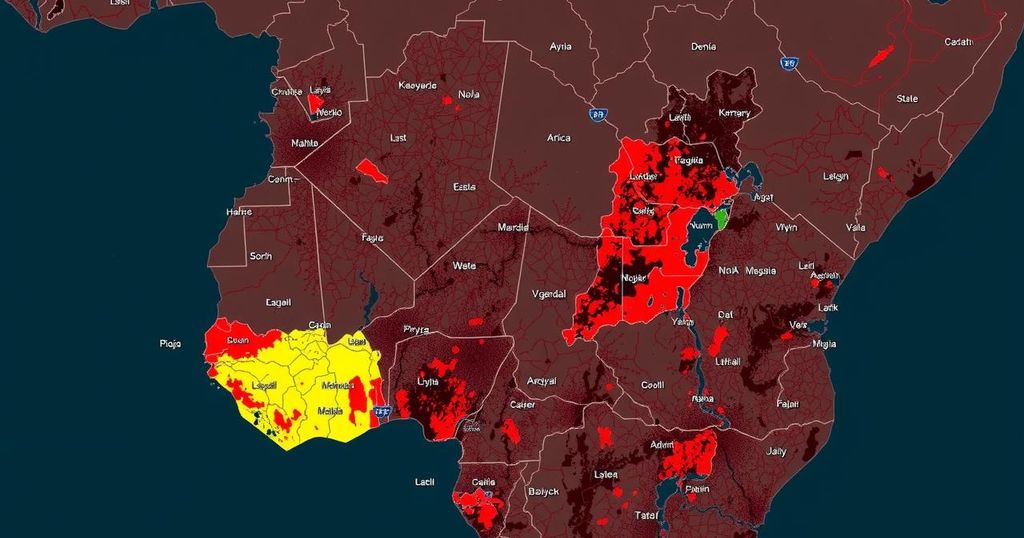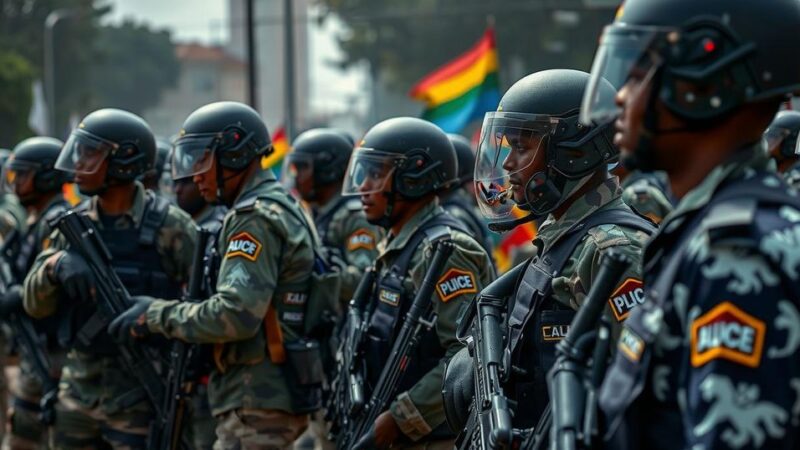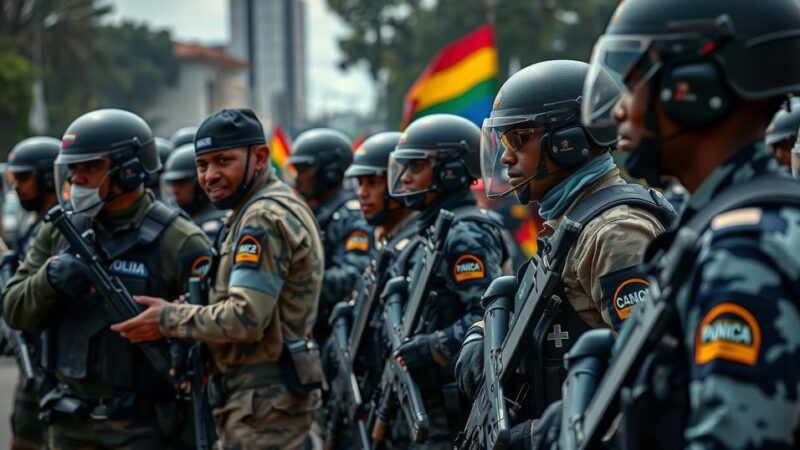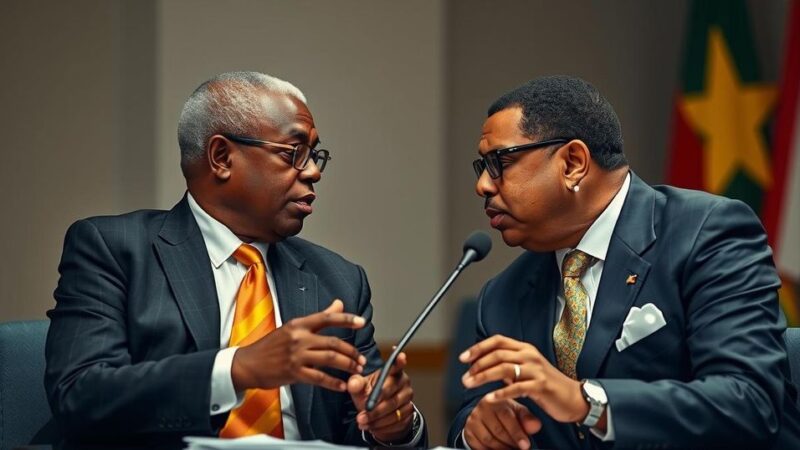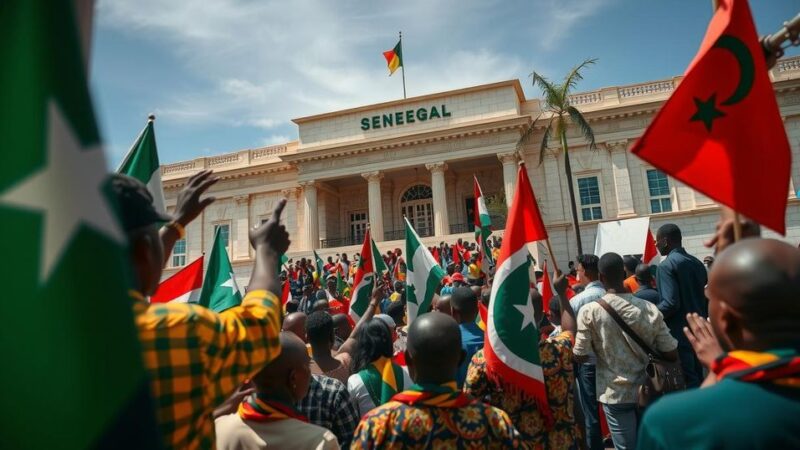Mozambique has descended into violence following contested elections, resulting in at least 30 deaths and widespread protests. Independent candidate Venancio Mondlane disputes the election results, calling for national demonstrations. This unrest poses significant concerns for Southern Africa, particularly given the region’s recent successful elections. Mozambique’s instability threatens regional trade, especially after South Africa closed its border with Mozambique, which has economic ramifications. The political chaos also exacerbates migration challenges, raising urgent questions about the region’s stability.
Mozambique is currently experiencing widespread unrest following the contentious outcome of the October 9 elections, in which the ruling Frelimo party’s candidate, Daniel Chapo, emerged victorious. Protests have erupted across the nation, leading to at least 30 fatalities amidst escalating violence. This unrest is particularly concerning for the Southern African region, as it raises questions about political stability and electoral credibility, particularly in light of recent developments in neighboring countries such as South Africa and Botswana, where democratic processes have been notably more stable. The aforementioned elections have sparked significant discontent within the opposition, particularly from independent candidate Venancio Mondlane, who received 20% of the votes and is actively challenging the results while urging nationwide demonstrations. The Southern African Development Community (SADC) summit will likely address these pressing issues, highlighting the impacts of Mozambique’s instability. In Southern Africa, various countries have managed successful electoral processes, contrasting starkly with Mozambique’s current turmoil. The ruling parties in nations like Botswana and South Africa have faced electoral defeats without resulting unrest, suggesting a growing trend toward democratic transition and stability in those regions. The recent allegations of election irregularities in Mozambique, noted by European Union observers, further complicate its situation, especially considering the enduring electoral challenges faced by Zimbabwe. Moreover, Mozambique’s position as a vital player in the regional economy cannot be overlooked. Given its strategic location and border connections with several countries—including South Africa, Tanzania, and Malawi—any instability poses a threat to regional trade and could exacerbate ongoing issues such as illegal migration. South Africa’s decision to close the Lebombo border following protests illustrates the immediate economic ramifications of Mozambique’s unrest. The country’s political landscape remains fraught, as it contends with the legacy of a brutal civil war that lasted 15 years. Despite progress since the first multiparty elections in 1994, Mozambique is still grappling with internal conflicts, such as the rise of an Islamic State-affiliated group in Cabo Delgado. The impact of this political violence goes beyond borders, influencing migration patterns as many Mozambicans seek better opportunities abroad due to instability at home. Collectively, these elements underscore a critical need for regional cooperation to address the challenges presented by Mozambique’s post-election violence, which, if unaddressed, could have dire implications for the entirety of Southern Africa.
Post-election violence in Mozambique represents a significant concern for the Southern African region, as it poses threats to both political stability and economic cooperation. The recent elections, in which the ruling Frelimo party extended its long-standing rule amid allegations of electoral malpractice, serve as a catalyst for unrest. As Mozambique grapples with the aftermath of extensive civil conflict and ongoing security challenges, the potential for regional ramifications, particularly in trade and migration, is alarming. The stability of Mozambique and its electoral integrity is critical to maintaining the democratic principles that some nations in the region have achieved more successfully.
In conclusion, the situation in Mozambique is emblematic of broader concerns regarding electoral integrity and its implications for regional stability in Southern Africa. The unrest arising from disputed election results poses substantial risks for both internal peace and external economic relations. As neighboring countries navigate their own political transitions, the outcome of Mozambique’s turmoil will significantly influence the geographic area’s future, necessitating regional engagement and strategic responses to foster peace and democratic governance.
Original Source: apnews.com
